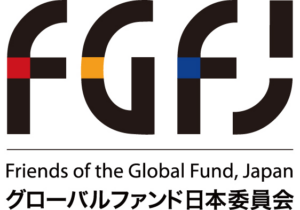

On November 10, 2020, FGFJ held a combined session that represented the third meeting this year of FGFJ Diet Task Force and the first of the FGFJ Advisory Board. The two groups gathered to hear a presentation by Dr. Osamu Kunii, the Head of Strategy Investment and Impact of the Global Fund, and to discuss the urgent funding needs that the Global Fund is facing. The meeting welcomed 44 participants in total—both in-person in Tokyo and online—including 10 Diet members from various parties, 17 Advisory Board members, and 10 special guests. Among the special guests was a new Global Fund Board member, Ambassador Koji Yonetani of the Ministry of Foreign Affairs (MOFA), who joined the meeting for the first time.
===
Following introductory remarks by Representative Ichiro Aisawa, Co-chair of the FGFJ Diet Task Force, Dr. Kunii opened his presentation by illustrating the characteristics of COVID-19 and its impact globally as well as locally, touching upon his own experiences in Geneva, one of the pandemic’s epicenters in Europe. While he acknowledged the huge impact the virus has had, Dr. Kunii pointed out that there are still more cases of malaria and tuberculosis (TB) than COVID, and that the addition of COVID-19 has had a variety of negative impacts on the communities that the Global Fund supports.
Dr. Kunii concisely explained the mission and strengths of the Global Fund, which have been developed over the years as they have fought against the three major infectious diseases, and described how the organization is now well positioned to contribute to the COVID-19 response because of its expertise and experience. As one example, Dr. Kunii mentioned the unique strengths of the Global Fund, such as its agility and flexibility—not commonly seen in a large international organization—and explained that applications from the recipient countries for the flexible use of existing funding to help fight COVID-19 were reviewed and approved in less than three days during the early stages of the pandemic. This process helped many recipient countries in Africa and Asia to prepare diagnostics and testing procedures using the existing capacities originally set up for TB and HIV responses. He also pointed out that the Global Fund was able to quickly employ the power of mass procurement from the early stage of the pandemic, which became a lifeline for many countries to secure the diagnostic/testing kits.
Dr. Kunii concluded his presentation by breaking down the funding needs and the current gap of ¥4 trillion , and how the Global Fund has been leading the efforts of the international community to coordinate and collaborate among relevant international organizations through the Access to COVID-19 Tools-Accelerator (ACT-A) framework. The Global Fund is taking the lead in the Diagnostics Pillar of the ACT-A (together with FIND), as well as in the Health System Connector Pillar (with the World Bank). While Dr. Kunii understands the high expectations for a vaccine, he insisted that it would not be a silver bullet to magically solve all of the issues around the virus. Thus, it would be important to ensure that the proper steps are taken in providing equitable distribution and availability of diagnostics and testing to respond to the pandemic.
During the Q&A session, Dr. Kunii answered a number of questions regarding both the general response to the pandemic and the roles and expertise of the Global Fund. When asked about the current prevalence in Africa, Dr. Kunii pointed out the importance of supporting people who tested positive within their communities in order to avoid further spreading of the virus, noting the critical roles of the community that the Global Fund has prioritized.
As Representative Motohisa Furukawa, Co-chair of the FGFJ Diet Task Force, emphasized during the meeting, it is important that we not let all of the past efforts that have been made to end the HIV/AIDS, TB, and malaria pandemics be wasted, and rather that we leverage the COVID-19 pandemic as a wakeup call for all of us to tackle global pandemics together.

===
The FGFJ Diet Task Force is a multi-party initiative that brings together Diet members to examine ways to broaden Japan’s international role in combating the global threats of AIDS, tuberculosis, malaria, and other communicable diseases. The task force convenes several times a year with experts and leaders from around the world. For more information, visit the FGFJ Diet Task Force page.
